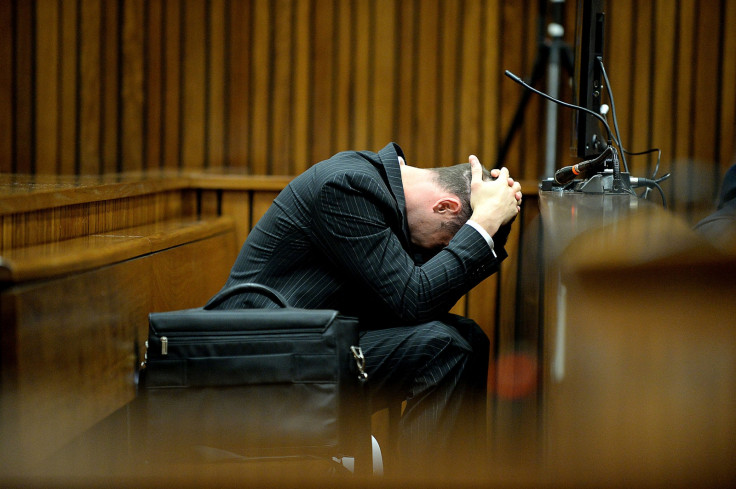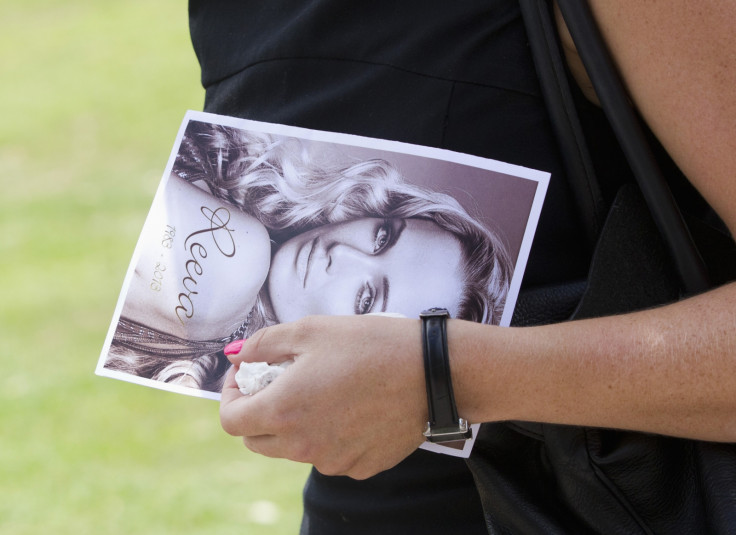Oscar Pistorius Guilty: Let's Not Forget About Reeva Steenkamp During the Show

Six months after it started, the trial of Oscar Pistorius over the shooting of Reeva Steenkamp has ended. At the Gauteng Division of the High Court of South Africa, Judge Thokozile Masipa has given her final verdict: Pistorius is guilty of culpable homicide and faces a sentence of up to 15 years in prison.
Since March, the world has watched the courtroom drama unfold around the athlete. Various elements of the trial have captivated the public, including a celebrity killer and the death of a model. But the media circus surrounding Pistorius has led us to overlook the victim in this tragedy. Instead, the public has been gripped by the tears, the anger, the Shakespearean confrontation between defence and prosecution, and the elusive facts at the centre of the case.
But at the heart of the trial is Reeva Steenkamp, who, on Valentine's Day last year, was shot four times through a bathroom door in Pistorius' home in Pretoria. By and large, she has been forgotten in the furore of the trial. The focus has been on the drama of the witnesses being cross-examined, and the athlete's reactions in court.
There have only been a handful of moments during the trial when the public has remembered Reeva. Two weeks after the hearing began in March, photographs of her bloodied corpse were flashed on a screen in court for just a few seconds.
Gasps echoed around the room, and several of the small handful of Reeva's friends and relatives in court were in tears as they rushed to leave. Even after all of the evidence about the manner of her death, the actual sight of her body – shown by mistake by the prosecution – was enough to remind everyone that the show is not entirely about Pistorius.

Born in Cape Town and raised in the eastern city of Port Elizabeth, Reeva, a former law graduate and model, moved to Johannesburg after landing a job as the face of Avon. An advocate for women's rights, Reeva's close friend Kerry Smith said in a BBC interview that the pair had planned to set up a law firm to help abused women after graduating. Both women had reportedly been involved in abusive relationships.
When Reeva was killed, her death launched one of the most high-profile murder trials in the world. But it also meant that Reeva had become one of the women she set out to protect, in a country where violence against women is prevalent. In South Africa, the rate of intimate femicide, the killing of women by intimate partners, is five times higher that the global average.
But instead of highlighting these horrifying statistics, the spotlight has been solely on Pistorius. The case was compared with the OJ Simpson trial before it even opened, and, like Simpson, the Pistorius that has emerged during the case is a complex jigsaw-puzzle of a man. He is a character from a novel, shrouded in paradox: portrayed as a sentimental romantic and a thug; a broken, vulnerable man and a ruthless premeditator; and a narcissist and a man with a crippling anxiety disorder.

When Reeva was killed in 2013, the Sun and the Daily Mail chose to run articles picturing her in a bikini. Since then, the model, paralegal and television personality has no longer been represented as a victim, but rather an object – overshadowed by the enigmatic Pistorius.
In May, gambling website Paddy Power ran an advert betting on the trial outcome, with the tagline: "Money back if he walks." It was pulled by the Advertising Standards Authority after a record 5,200 complaints, but just goes to show how just how much Reeva's death has been overlooked in favour of entertainment. Surely Reeva deserved more than for her death to be used as a crass marketing stunt.
Throughout the trial, the prosecution and defence lawyers, who have referred to Reeva as "the deceased", have also stolen the spotlight. Blanket media coverage has turned prosecutor Gerrie Nel – "the pitbull" - and lead defence advocate Barry Roux into reluctant celebrities. Both have colourful backgrounds and neither are strangers to public attention. Roux has previously represented Dave King, a Scottish-born businessman and former Rangers Football Club director, who risked jail for ignoring the largest tax bill in South African history.
The names of both Nel and Roux have been attached to satirical Twitter accounts and their arguments turned into spoof rap songs, transforming a murder trial into a performance - in which the victim barely features. Regardless of the verdict, we would do well to remember Reeva - without whom the trial would not exist.
© Copyright IBTimes 2025. All rights reserved.






















